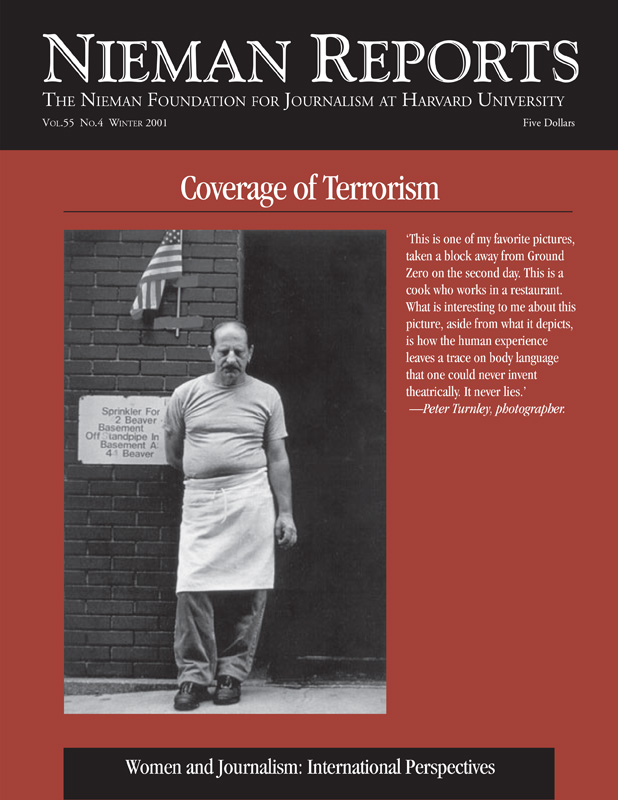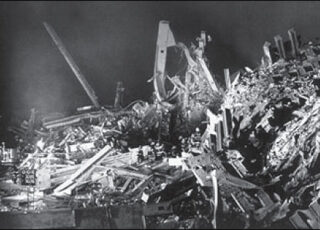ISSUE
Winter 2001

Coverage of Terrorism
Through the night of September 11, 2001, photographer Peter Turnley took refuge in a second-floor office in a clothing store, its windows blown out by the force of the attack on the World Trade Center. As he tried to absorb what he was seeing, he documented the devastation. At dawn, he moved close to the site and fastened his journalistic eye on faces whose expressions evoke our feelings of loss. From covering war, Turnley knew that “the most important pictures…are after the battle, when one sees the human impact.”
Articles
Journalist’s Trade Visual Journalism
Using Graphics to Tell Stories
‘[O]nline graphics add other dimensions to the stories we report….’
December 15, 2001
International Journalism
Reporting on Gender in Journalism
‘Why do so few women reach the top?’
December 15, 2001
